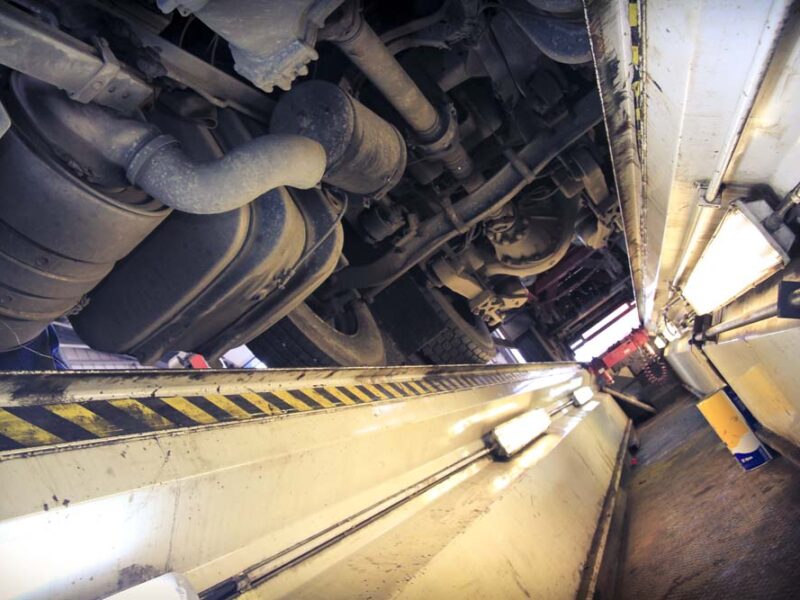The value of independent compliance systems audits for road transport operators has long been established, and that value has been recognised for many years by Traffic Commissioners. Many public inquiry cases culminate in operators offering the Traffic Commissioners an undertaking that the operator will obtain an independent compliance audit and supply a copy of the audit report to the OTC by a certain date.
For obvious reasons, the government "lockdown" arising out of the Covid-19 pandemic has made the completion of audits in the traditional way - i.e. with the auditor attending at the operator's operating centre or office in order to go through original paper records - all but impossible.
However, as set out in the OTC's Emergency Statutory Guidance Document (click here) together with its Cover-19 Advice for Operators document (for the link to the update on 6th April 2020 - click here), regulation of the industry continues, and interim measures have been put in place to ensure that this regulation can continue as efficiently and fairly as possible during these unprecedented times.
Whilst most (if not all) face to face Public Inquiry hearings have been postponed, the OTC is now finding other ways to resolve 'live' cases via hearings conducted by video link, whilst in less serious cases, Public Inquiries may be dispensed with on the basis that operators agree to undertakings, which may include an audit requirement.
Recognising the value of independent audit evidence whilst at the same time seeking not to put operators in an impossible position in the light of the current lockdown guidelines, the OTC have confirmed that on an interim basis, audits carried out remotely will be accepted and has published detailed guidance setting out strict requirements for any audit to be carried out this way. A remote audit involves the operator providing information and documentation electronically to an auditor for review, so that the auditor can then produce a report based upon the information supplied. The process itself is not new; the DVSA has been carrying out 'desk based assessments' on a similar basis for some time.
The guidance - which can be found here - is aimed at both operators and auditors. It sets out exactly what any remote auditor will be expected to consider, including the nature and number of documents with which an auditor should be supplied electronically in order to produce an audit report, and how documents and basic operator information should be provided (operators are told, for example, that they must not share their VOL login credentials with auditors). For the auditor, the document provides a clear template structure for the audit report.
Anyone offering an audit service needs to be familiar with the guidance document - but perhaps more importantly, any operator that has been required to obtain an audit (or any operator considering doing so voluntarily) should do likewise. Whilst the auditor should tell the operator exactly what he or she needs to be provided with in order to carry out the audit, operators should not rely solely on auditors to tell then what to do, nor should they rely on the auditor to ensure the final report covers everything it needs to. The first question any operator should ask a potential auditor before engaging their services is whether they are familiar with this guidance. A report which does not comply with these requirements may not be accepted by a Traffic Commissioner, which could leave the operator in breach of an O-licence undertaking.
Of course most importantly, operators should seek to achieve the maximum value from an audit, by using the process to achieve a compliant and safe operation.
If you have an audit requirement and need advice on ensuring that your systems and procedures are everything they should be, or if you have any other O-licensing queries, please do not hesitate to get in touch with us by calling 01279 818280 or click here to send an email.
Published 27th April 2020

More News and Insight

Social Media – Have you Thought about your Employees’ Use?
Social Media is all encompassing in the modern world, but although it brings many positives, it can place employers in vulnerable positions if their employees’ use is not carefully defined…

Changes to the Clandestine Entrant Civil Penalty Scheme means a Stitch in Time Really Does Save Nine!
The Clandestine Entrant Civil Penalty Scheme has been in place for over 20 years. It is designed to complement law enforcement activity against criminals who smuggle people into the UK illegally as well as deter those who decide to try to enter the country without permission…

Driving in the UK? Read about the latest Rule Changes in 2024
Earlier this year various new driving laws were introduced, impacting both standard road users as well as HGV and PSV road users across England, Wales & Scotland. If you are driving in the UK, especially if you are a commercial driver, then you should ensure that you are aware of these amendments and new rules…

Self-Driving Cars on UK Roads to be Reality by 2026
It seems that one of the first areas that will be breaking the ground in the AI revolution into most people’s everyday lives will be Self-Driving cars! Of course we have heard all this before, and more than once!

Are You Taking your Responsibilities to Maintain your Vehicles Seriously?
Running a haulage business is not an easy undertaking. There are a multitude of decisions to be made on a daily basis before any driver actually gets behind the wheel and delivers the goods (or passengers!).

Update to the Guide to Registering & Operating Local Bus Services in England & Wales
The Senior Traffic Commissioner’s guide to registering and operating local bus services in England and Wales is intended to help operators of local bus services understand the requirements for registering a service.

Changes to the HGV & PSV Test Regime for Earned Recognition Operators
In March 2021 the Government began a review into the processes for commercial vehicle testing to look at ways it could improve the regime for operators whilst still maintaining high safety standards for any vehicle used commercially on the UK’s roads.

Employment Law Updates for 2024
The Government has confirmed several legislative employment law changes to be implemented 2024, which aim to bring about a “fairer workplace for employees”.

Campaign to Bar Schools from using Section 19 Permits
In March 2024 a campaign was started to end the operation of minibuses by schools and colleges under Section 19 permits.

Moving to a Digital First Approach in Heavy Vehicle Testing
The DVSA has published an update to their digital transformation project for heavy vehicle testing. The update is for the new Manage Your Vehicle Testing (MyVT) digital service across vehicle testing.

Traffic Commissioner Highlights Abuse of Section-19 Permits
In a Section 19 Public Inquiry hearing heard last year (2023) the Traffic Commissioner highlighted again the importance of permit operators ensuring that their vehicles allow passengers and other road users to be safe.

Enero Logistics Ltd – the Law for Operators on Agency Drivers
At one time or another, many transport companies need to rely on the services provided by agency drivers, to best cope with sudden fluctuations in demand or to fill driver shortages. This allows for the undisrupted continuation of services by these organisations.
